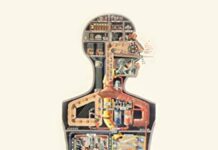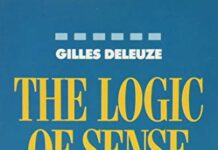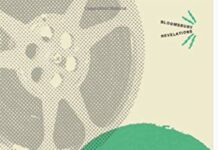
Ebook Info
- Published: 2005
- Number of pages: 104 pages
- Format: PDF
- File Size: 2.53 MB
- Authors: Gilles Deleuze
Description
Pure Immanence collects the essays of Gilles Deleuze on a complex theme at the heart of his philosophy. In his last piece of writing, included here, Deleuze gives a simple name to this problem: “a life.” Newly translated and gathered in one volume for the first time, the essays in Pure Immanence capture Deleuze’s persistent search throughout his philosophical work for a new and superior form of empiricism that rethinks the relation of thought to life. “I have always felt,” writes Deleuze, “that I am an empiricist, that is, a pluralist.”Announced in his very first book on David Hume, then pursued in his early studies of Nietzsche and Bergson and in his later “clinical” essays, the issue of an “empiricist conversion” was central to Deleuze’s thinking, in particular to his aesthetics and his conception of the art of cinema. For Deleuze, such a conversion, such an empiricism, such a new art and will-to-art were, in fact, what was most needed in the new regime of communication and information-machines.The last, seemingly minor question of “a life” is thus inseparable from Deleuze’s striking image of philosophy not as a wisdom we already possess, but as a pure immanence of what is yet to come. Pure Immanence exposes the new and urgent problems such a philosophy confronts today, one whose most difficult task, the invention of “a life,” has yet to be achieved.
User’s Reviews
Editorial Reviews: Review A glimpse into some seminal themes of [Deleuze’s] work. This book is worth purchasing for the Nietzsche essay alone.―Jennifer Matey, MetapsychologyTaken together, these essays are a sparkling and succinct affirmation of knowledge as something produced through myriad unexpected encounters and an ongoing assemblage of new multiplicities, where a life can never be fully or precisely specified, but remains indefinite and provisional, unfolding through an unending process of becoming.―Jody Patterson, Parachute About the Author Gilles Deleuze (1925-1995) was Professor of Philosophy at the University of Paris VIII, Vincennes/Saint Denis. He published 25 books, including five in collaboration with Fé lix Guattari.
Reviews from Amazon users which were colected at the time this book was published on the website:
⭐Charles Dickens captures the essence of the philosophical nature of reality according to Deluze.Ellen Berry notes that “three brief essays make up Pure Immanence — one on Hume, one on Nietzsche, and one — “Immanence: A Life” — that functions as a Deleuzian last testament of sorts, written as it was “in a strange interval [immediately] before his death” as John Rajchman informs us in his very useful introduction to the volume. In this essay, which appears first in the book, Deleuze defines what he calls a “transcendental empiricism,” as a-subjective, impersonal, wild and powerful state, existing “in contrast to everything that makes up the world of the subject and the object”.Unlike a notion of the transcendent, the plane of the transcendental is an absolute immanence, complete in itself, neither “in something” nor belonging to someone (say some notion of a universal subject). “It is only when immanence is no longer immanence to anything other than itself that we can speak of a plane of immanence”. Pure or absolute immanence is what Deleuze calls “A LIFE,” defined as a paradoxical experience/duration in which individuality fades and becomes “a singular essence,” an empty time of singularities or virtualities existing in between what we take to be the defining moments of an individual’s life. A LIFE unfolds according to a different logic than the life of an individual. It can never be grasped fully; it is always yet “in the making,” in potentia, and flashes into conscious existence only occasionally. Deleuze gives two striking examples to illustrate this enigmatic state/space/time, the first from Dickens’s
⭐:”A disreputable man, a rogue, held in contempt by everyone, is found as he lies dying. Suddenly, those taking care of him manifest an eagerness, respect, even love, for his slightest sign of life. Everybody bustles about to save him, to the point where, in his deepest coma, this wicked man himself senses something soft and sweet penetrating him. But to the degree that he comes back to life, his saviors turn colder, and he becomes once again mean and crude. Between his life and his death, there is a moment that is only that of a life playing with death.”In another example, Deleuze calls attention to very small children, as yet unformed as individuals, who all tend to resemble one another except in their singularities — a smile, a gesture. “Through all their sufferings and weakness, [they] are infused with an immanent life that is pure power and even bliss”.As Rajchman points out, one would need a new conception of society in order to understand Deleuze’s notion of a life. It would be one in which we recognize that what we share is our singularities and not our individualities, that “what is common is impersonal and what is impersonal is common” (14). From this perspective, society is viewed not as a social contract between individuals but as an experiment with what in life precedes both individuals and collectivities. Relations with others would be based not in identification or recognition but in encounter and new compositions formed by saying “yes” to what is singular yet impersonal in living.Berry notes that “This all too brief summary cannot do justice to what is a complex set of musings. While Pure Immanence is not the place to start if one is unfamiliar with Deleuze’s thought, it is a rich, rewarding, and not inaccessible read.”—————————————————————————-Chapter Three is a brilliant summary of Nietzsche’s project:Nietzsche’s Thus Spoke Zarathustra outlines three metamorphoses of the spirit 1) The camel which carries the weight of established values such as education, morality and culture 2)The lion which destroys and is the critique of all established values, and finally 3) the child of innocence carrying a mirror which reveals our monsterousness, who creates new values and new principles of evaluation.An example of the creation of a new value is by observing that while illness is an evaluation of health, out of one’s excessive well being, health can become the evaluation of illness through affirmation, even in the face of the illness–such is the “reversal,” the “shift in perspective” that Nietzsche saw as crucial in the transmutation of values. It is this easy shift in perspectives from health to sickness and from sickness to health, this lightness of movement that signifies “great health.””All interpretations determine the meaning of a phenomenon.” Meaning consists of a relation of forces the active ones being valid (conquest and subjugation) and others being invalid and reactive (adaptation and regulation). Will is the relation of force to Force, but this doesn’t mean that the will wants power or domination which becomes dependent on established values. The will to power consists not in coveting or even inn taking but in creating and giving. The power of will in not in having what we want but in our having the will to want.Active forces affirm, and affirm in their difference (affirmation), while reactive forces principally negate, oppose, and limit the other (nihilism). While interpretation finds meaning in forces, evaluation finds values in the will to power.The history of man and of nature has been the triumph of reactive forces, of negation, of adaptation (e.g., natural selection) and regulation. Slaves triumph in their subtracting and limiting others while “masters are slaves that have triumphed in a universal becoming-slave: European man, domesticated man, the buffon.” When nihilism triumphs, the will to power stops meaning to create, and leads to want to dominate, to take on “established values: money, honors, power.”The typology, stages moving beyond the triumph of nihilism:1) Resentment against everything that is active. Projection of blame–“It’s your fault.”2) Bad Conscience. Introjection of blame–“It’s my fault.”3) The ascetic ideal–Life, salvation is judged according to values that are said to be superior to life–lead to nothingness. The ascetic are carriers (donkey, buffoon) of the weight of responsibility to higher values, rather than the creative lightness of the dancer.4) The death of God. The negation of the higher values are replaced by human values (“morals replace religion; utility, progress, even history replace divine values”). This is the higher man who claim to embrace all of reality, but are still carriers, burdened by human values (the Yes of the donkey).5) The last man and the man who wants to die. The Last Man says all is vain, “better a nothingness of the will than a will to nothingness.” Here is the “will to deny reactive life itself, and inspires in man the wish to actively destroy himself, a readiness for transmutation by “an active becoming of forces, a triumph of [the aggressivity that belongs to] affirmation in the will to power,” like the “lightening that announces the thunder that follows, what is affirmed.” “Joy emerges as the sole motive for philosophizing.Stages of transmutation:1) Multiplicity and becoming as objects of affirmation. “Joy [of the diverse, the multiple] emerges as the sole motive for philosophizing.2) Becoming is no longer opposed to Being (the Being of becoming), the One is said of the multiple as multiple (the One of multiplicity). One affirms the necessity of chance, the player rolls the dice in affirmation.3) The Eternal Return, not of the Same, but repetition of what can be affirmed beyond negation, the liberating. “I `must’ want it in sucha a way that I also want its eternal return.”4) The Overman–the gathering of all that can be affirmed, the superior form of what is–Dionysus.
⭐This book might be too *stigid* for you. The introduction quotes Deleuze on the nature of his philosophy, “… We will speak of a transcendental empiricism in contrast to everything that makes up the world of the subject and object.” (p. 8, quoting Chapter One, Immanence: A Life, p. 25). For those who consider philosophy too confining to escape the metaphysics suggested by Kant, this might seem like a welcome suggestion, but the uniqueness of such a broad approach, as it might apply to changes in any particular life, is largely nebulous. Even Chapter Two, Hume, in which “A parallel conversion of science or theory follows: theory becomes an inquiry (the origin of this conception is in Francis Bacon; Immanuel Kant will recall it while transforming and rationalising it when he conceives of theory as a court or tribunal)” (pp. 35-36) is beyond my usual contemplation and “its attempt to reduce the paradox of relations;” (p. 37). The final chapter, on Nietzsche, strikes notes which I know well enough to become critical, and I find an assertion which must make this book more unique than most:”Dialectics itself perpetuates this prestigiditation. Dialectics is the art that invites us to recuperate alienated properties.” (p. 70).Surely the right word for dialectics is prestidigitation, the sleight of hand that quickly moves things about to produce one thing where another was expected, but this book is produced in a world which is far more used to typing `prestige’ when it has just been considering Kant, even if the paragraph preceding this unique assertion about dialectics ended with the kind of questions that Nietzsche was always throwing in Kant’s direction:”Who can really think that Kant reinstated critique or rediscovered the idea of the philosopher as legislator? Kant denounces false claims to knowledge, but he doesn’t question the ideal of knowing; he denounces false morality, but he doesn’t question the claims of morality or the nature and origin of its value. He blames us for having confused domains and interests; but the domains remain intact, and the interests of reason, sacred (true knowledge, true morals, true religion).” (p. 70).Thorough knowledge of Nietzsche is indicated by the ability to make his philosophy illustrate the grand theme of “the symptoms of a decomposition.” (p. 72). A key to this understanding is:”Nietzsche is the first to tell us that killing God is not enough to set about the transmutation of values. In his work, there are at least fifteen versions of the death of God, all of them very beautiful.” (pp. 71-72).Going back to dialectics as prestigiditation, most people seem to be lost in the efforts to stigmatize, or hoping for stigmatism as a vision not subject to astigmatism, particularly “As long as the will to power is interpreted in terms of a `desire to dominate,’ we inevitably make it depend on establish values, the only ones able to determine, in any case or conflict, who must be `recognized’ as the most powerful. We then cannot recognize the nature of the will to power as an elastic principle of all of our evaluations, as a hidden principle for the creation of new values not yet recognized.” (p. 73).It might be possible to explain everything in this book by creating and giving value to words like *stigid* which unintentionally crept into the middle of a word in a complicated thought on the limits of the nature of philosophy. The complexity of transcendental empiricism might even relate to the explanation that Deleuze offers for “The will to power is the differential element from which derive the forces at work, as well as their respective quality in a complex whole.” (p. 73). People who find this kind of thought too *stigid* for real mathematics, in which differential elements are usually determined easily if we know the formula from elementary calculus, but we rarely think about them otherwise, might not enjoy reading this book. People who already know a lot of Nietzsche will not be surprised to find, “Everywhere we see the victory of No over Yes, of reaction over action. Life becomes adaptive and regulative, reduced to its secondary forms; we no longer know what it means to act. Even the forces of the earth become exhausted on this desolate face.” (p. 75). Perhaps the book has far more explanations than examples, and tends to emphasize the worst view of things overall, but it moves on, after “Zarathustra cries out his great disgust, his great contempt,” (p. 90).
⭐What really happens in general does not fit the patterns of any knowledge that scholars learn by bits and pieces. Page 72 has a summary of how we become losers:This process of degenerationconcerns not only philosophybut also becoming in general,or the most basic category of history.not a fact in history,but the very principlefrom which drive mostof the events that havedetermined our thinkingand our life, the symptomsof a decomposition; . . .it must be untimely, always untimely.Kierkegaard wrote as an imaginary friend trying to describe how eternal expectations provide such bliss that at the end of Concluding Unscientific Postscript he needed to identify himself as an author and revoke what was printed. No authority has ever comprehended what people experience when men and numbers get to the bottleneck that makes pinwheelers with a cudgel look like fools with disordered clothing. Pictures from the Middle Ages with many pinwheelers appear in Seeing the Insane by Sander Gilman.
⭐Not found.
⭐Not found.
Keywords
Free Download Pure Immanence: Essays on a Life (Zone Books) in PDF format
Pure Immanence: Essays on a Life (Zone Books) PDF Free Download
Download Pure Immanence: Essays on a Life (Zone Books) 2005 PDF Free
Pure Immanence: Essays on a Life (Zone Books) 2005 PDF Free Download
Download Pure Immanence: Essays on a Life (Zone Books) PDF
Free Download Ebook Pure Immanence: Essays on a Life (Zone Books)





